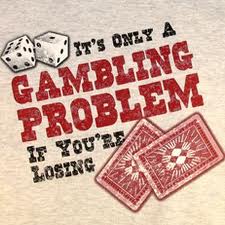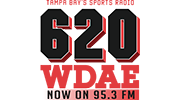The Fresh Perspective
Written by JSpacer6
As we approach football season, I wanted to take some time to share with those who plan on getting down on the games what I’ve learned in ten plus years of sports betting. I write this from the perspective of a third year law student, not a professional gambler. I don’t have the time to make my own power rankings or crunch stats and trends the way those who make a living do. Rather, like most of you reading this, I enjoy betting on sports, and believe i have finally found a place where I have learned to channel that enjoyment into a positive investment. Hopefully this advice can help those who have a sharp mind for sports betting, but havent yet figured out how to use it to turn a profit.
If football is your sport, you have to know that you are in the tightest market that exists in the sports gambling world. The lines are cut throat in the NFL so in order to turn a profit a ruthless yet confident approach needs to be employed. What does this mean? On the one hand is perfect money management, which is by far the hardest thing to learn for novice gamblers. This has been said many times but you must have a bankroll that matches your bet size. If you want to bet $100 a game, you really should have at minimum a $3,000 bankroll. Personally, I have given up on “unit” betting. I know that by betting mostly college football with a little NFL I should hit around 55% of my plays and by seasons end this will give me the return on my investment I am looking for if I flat bet every game. Moreover, the increased stress of stepping out on a play can lead to burning out, which for the less disciplined, leads to tilt. Because I know that I’m not the type of person who is immune to tilt, the only way I can be sure to avoid it is flat betting. My hunch is that most recreational betters are also capable of tilting fairly easily and should probably adopt a similar disciplined approach.
Once you have learned the money management side of the fine line, the question becomes how do you get your record up around 55%? The one thing I have learned from asking the right questions is that the key to gaining a long term edge on the books is to get the best of the number. This is a task much easier said than done, especially If you are like me and don’t have time to make your own power rankings. The answer, I believe, is confidently using your intuition so that when the right play is there you don’t hesitate to pull the trigger, thus giving yourself the best chance to get the best of it. What should your intuition be based on? This is tough question because I believe most of it cannot be taught. Growing up i went to thousands of games with my dad, many of which were to see my team play on the road. I believe this gave me a strong sense of how important home field advantage is, especially in football, and how much a teams performance fluctuates on a week to week basis.
One thing I always try to keep in mind is that I want to base my plays on the things that aren’t built into the line. Everyone knows who plays for each team, what their record is, what teams records are against each other, etc. Situational spots though, are less likely to be built into power ranking formulas. These are the angles that bookmakers can’t always use in adjusting their numbers. Because bookmakers rely heavily on the marketplace to steer prices, the task becomes getting ahead of the market or waiting for the market to come to you. Certain books are accessible to the average bettor here in the States that put their lines out early and if you are confident in your situational plays, you can beat opening numbers. Remember these lines are tight and once they have settled they are rarely better than a 52% proposition. This doesn’t mean that you should strictly bet the opening numbers, but if you are like me, you should use the motto that if it looks good grab it. Remember, you will never be perfect in getting the best of the number because you don’t have any control over the market at large. Syndicates move lines, not you. However, if you can be right more often than not in getting the best of it, you’ll gain the edge you need when the games actually kickoff.
In order to take this approach, you must plan ahead, know the schedule, and regularly monitor the lines. Schedule analysis is key for figuring out which weeks teams will be up and down, where the sandwich spots are, and whether these spots will be played early or late in the week by the professionals. By Thursday I have already broken down the following weeks games and know which ones I will be targeting Sunday night and which ones I will monitor throughout the next week. If I told you that this wasn’t what I was doing on my laptop in the back row of my law classes 80% of the time, I would definitely be lying to you. Normally I will play more college openers and wait on the NFL, as the big NFL money tends to come in later in the week after limits have increased. Also, I am simply more confident in college than the NFL. On game day I try to watch the teams I will be betting on or against the next week, looking for an abnormally poor or overwhelming performance respectively to gain incremental value in the opening number and lead to an early play.
If this all sounds like alot to take in just to turn a decent profit, it is. The bookmakers take their jobs just as seriously as you do and if making money in this game were easy, everyone would be doing it. In my opinion, this fine line of having perfect money management while at the same time being confidently aggressive in making plays must be straddled to make that solid return on investment. If you toe the line and have the talent and intuition, football season can be very rewarding but don’t fool yourself into thinking anything less will lead to success.













